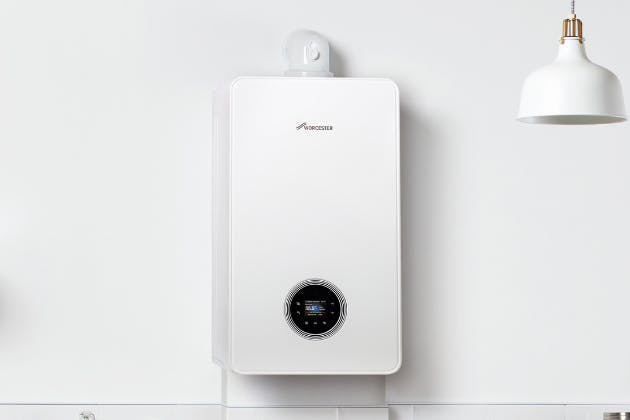LPG boilers have become an increasingly popular choice for homeowners seeking efficient and environmentally friendly heating solutions, particularly in areas without access to mains gas. As the UK moves towards its net-zero greenhouse gas emissions goal by 2050, understanding the advantages and drawbacks of LPG boilers is crucial for making informed decisions about home heating systems.

What are LPG Boilers?
LPG boilers operate using Liquefied Petroleum Gas, a fuel derived from natural gas processing and oil refining. Unlike natural gas boilers that connect to the mains supply, LPG boilers require a separate storage tank on the property. This tank serves as the fuel source, necessitating periodic refills to maintain the heating system's operation.
The fundamental working principle of LPG boilers mirrors that of natural gas boilers. The primary distinction lies in the fuel source and its storage. LPG boilers burn the stored gas to heat water, which then circulates through radiators or underfloor heating systems to warm the home. They can also provide hot water for taps and showers, depending on the boiler type.
Pros of LPG Boilers
Cost Efficiency
LPG boilers often present a more attractive upfront investment compared to natural gas systems. The average cost of an LPG boiler ranges from £500 to £2,500, depending on the model and capacity. This initial outlay is typically lower than that of a natural gas boiler installation, which can cost between £1,000 and £3,000.
However, it's crucial to factor in the ongoing fuel costs. While the boiler itself may be cheaper, LPG prices can fluctuate and are generally higher than natural gas rates.
Environmental Benefits
LPG boilers offer a significant environmental advantage, producing approximately 20% fewer greenhouse gases than their natural gas counterparts. This reduction in carbon emissions makes LPG a cleaner energy source, aligning with increasing environmental consciousness and stricter emissions regulations.
Compact Size
The compact design of LPG boilers makes them particularly suitable for smaller living spaces. They're an excellent choice for park homes, tiny houses, or properties with limited installation space. This space-saving attribute doesn't compromise on heating efficiency, ensuring optimal performance in a smaller package.
Efficiency
Modern LPG boilers boast impressive efficiency rates, typically around 90%. This high efficiency translates to minimal energy waste, ensuring that most of the fuel consumed is converted into usable heat. Such efficiency not only reduces environmental impact but can also lead to lower energy bills over time.
Availability
Leading boiler manufacturers widely produce LPG boilers, offering consumers a broad range of options. Brands such as Baxi, Glow Worm, Ideal Logic, Potterton, Vaillant, and Vokera all offer LPG models, ensuring that homeowners can select a boiler that best suits their specific needs and budget.
Cons of LPG Boilers
Higher Fuel Costs
While LPG boilers may offer lower upfront costs, the ongoing fuel expenses can be higher compared to natural gas. LPG prices are subject to market fluctuations and can vary significantly based on global oil prices and supply chain factors. Additionally, the need for regular fuel deliveries can add to the overall cost and inconvenience.
Storage and Delivery Issues
LPG boilers require a dedicated storage tank on the property. This tank needs regular refilling, which means homeowners must monitor fuel levels diligently to avoid running out of heating. The logistics of fuel delivery and storage can be challenging, particularly in remote areas or during periods of high demand.
Safety Considerations
LPG storage necessitates strict safety measures. The tanks must be securely installed and pressurised to prevent leaks or accidents. Compliance with safety regulations is paramount, often requiring professional installation and regular inspections. These safety requirements can add to the overall cost and complexity of maintaining an LPG heating system.
Additional Costs
Beyond the boiler itself, homeowners must factor in the costs associated with the LPG storage tank. This can involve either purchasing or renting the tank, which adds to the initial investment. Furthermore, some suppliers charge a monthly standing charge, increasing the ongoing expenses associated with LPG heating.
Types of LPG Boilers
LPG boilers come in three main types, each suited to different household needs:
- Combi Boilers: These provide both heating and hot water on demand, without the need for a separate water tank. They're efficient and space-saving, ideal for smaller homes.
- System Boilers: These work with a hot water cylinder to provide heating and stored hot water. They're suitable for properties with multiple bathrooms or high hot water demand.
- Regular/Conventional Boilers: These require both a hot water cylinder and a cold water storage tank. They're typically found in older properties and are ideal for homes with traditional heating systems.
Installation and Maintenance
Proper installation is crucial for the safety and efficiency of LPG boilers. It's imperative to use Gas Safe registered engineers who are specifically qualified to work with LPG systems. These professionals ensure that the boiler and storage tank are installed correctly and comply with all relevant safety regulations.
Regular maintenance is essential for optimal performance and longevity. Annual servicing by a qualified technician helps identify potential issues early, ensuring the boiler operates at peak efficiency and safety. This proactive approach can prevent costly breakdowns and extend the lifespan of the system.
Future Regulations and Considerations
The UK's commitment to achieving net-zero greenhouse gas emissions by 2050 has significant implications for heating systems. While the 2025 gas boiler ban primarily affects new builds, it signals a shift towards low-carbon heating solutions.
For existing LPG boiler owners, this doesn't necessitate immediate changes. However, when considering future upgrades or replacements, it's advisable to explore more sustainable options. These might include hybrid systems, heat pumps, or biogas-compatible boilers, which align with the long-term goal of reducing carbon emissions in home heating.
Contact our LPG boiler specialists
To find out more about LPG boilers and how we can help, get in touch with our team at 08001182467 or 07717574470 or by sending us a message using our online contact form. Our accredited installers are available across Yorkshire, including York, Malton, Wetherby and Harrogate.


